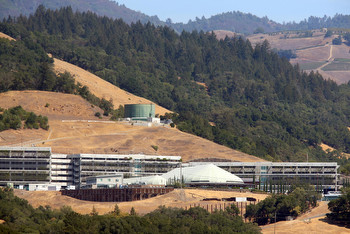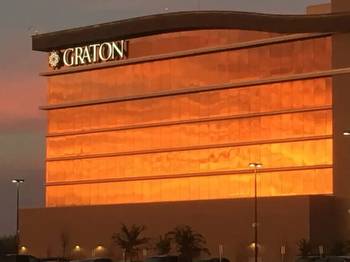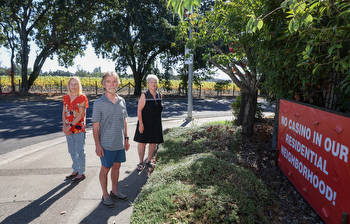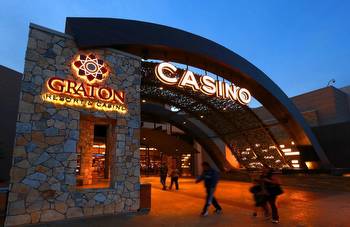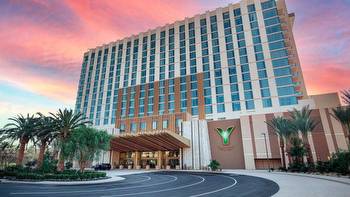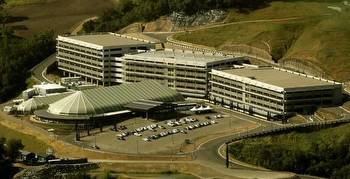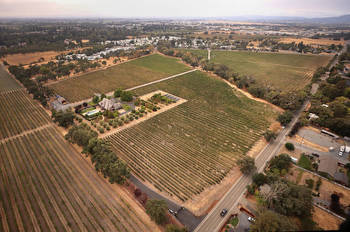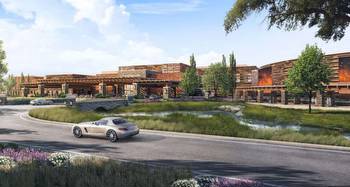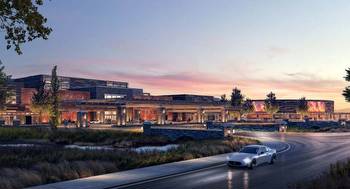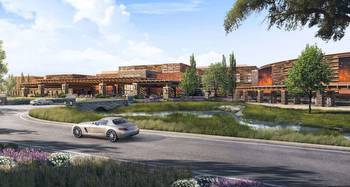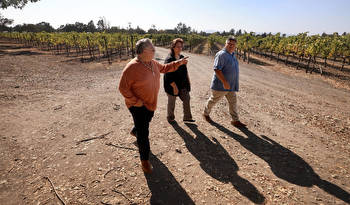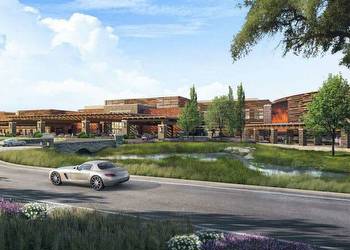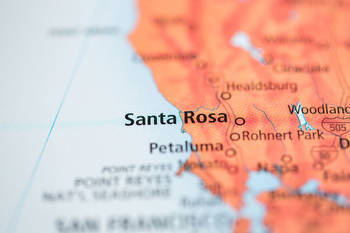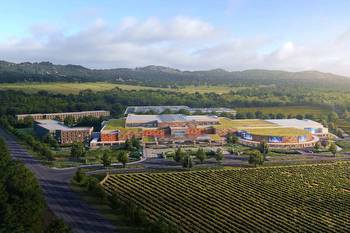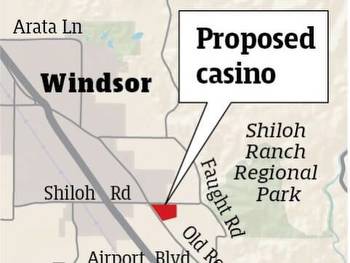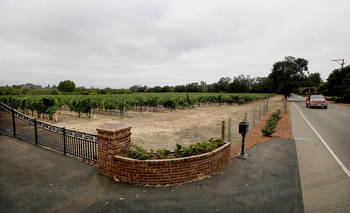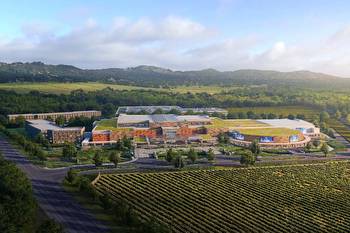Graton Resort & Casino proposes hotel, gaming floor expansion

Graton Resort and Casino is proposing a major expansion of its gaming floor and a second hotel tower, moves that could solidify its dominance as the Bay Area’s largest gaming destination in the face of a competing new casino proposal in Sonoma County.
The Federated Indians of Graton Rancheria, which owns and operates the casino on its 254-acre reservation off Wilfred Avenue outside Rohnert Park, want to expand the casino floor by 50% and add a five-story, 221-room hotel tower, according to a notice filed by the tribe last week with the city.
The expansion would further cement the casino as a leading Northern California destination and allow Graton Rancheria to become an even bigger player in the local hospitality market and California’s $8 billion annual tribal gaming industry.
The $825 million casino opened in 2013 with 3,000 slot machines, 144 blackjack, poker and baccarat tables, and several restaurants to cater to visitors around the clock. A 200-room hotel, convention space and ballroom opened in 2016.
The gaming resort is one of Sonoma County’s largest private employers, with more than 2,000 employees, and its workforce is likely to swell with the expansion.
The notice comes as the Koi Nation, another Pomo tribe, seeks to develop a competing gaming resort outside Windsor, a move opposed by Graton Rancheria and four other Sonoma County tribes, as well as the county Board of Supervisors.
Casino officials and representatives of Graton Rancheria declined to comment on the expansion. Tribal officials and casino managers as far back as 2017 floated plans to double hotel capacity.
An 850-page environmental study at that time examined potential impacts on traffic, groundwater and other resources — concerns shared by residents five years ago in a public meeting.
The current proposal is larger in scope.
New plans call for more gaming space at the front of the existing facility, which wasn’t included in the previous proposal and would increase the casino’s 320,000-square-foot footprint by 144,000 square feet.It will include a rooftop restaurant.
The hotel wing, which will be built adjacent to the existing hotel, will have more rooms. The resort’s swimming pool area also is set for expansion.
A 3,500-seat theater on the north side of the property and a new parking garage east of the casino are in the works.
The tribe plans to add a water tank to meet water needs.
The expansion could burnish the casino’s draw for out-of-town visitors and locals looking for a more all-encompassing entertainment destination, said I. Nelson Rose, a Utah-based professor, attorney and tribal gaming law expert.
But the planned growth comes at a time of uncertainty for the gaming industry.
Prolonged closures during stay-at-home orders and health protocols related to the pandemic hurt casino profits at a time when the gaming industry was already in flux, Rose said.
The industry was going through major demographic changes before COVID-19, with the crowd who would typically visit to play games aging, he said.
That has meant a shift away from just gambling to providing a more diverse experience for visitors.
“It sounds like this tribe has realized that and is growing its hotel and entertainment options,” he said.
Rose said adding hotel rooms and building the performance theater will attract more people and keep them on site longer, which means they’ll likely spend more money.
Sonoma County’s first Las Vegas-style tribal casino, River Rock Casino, owned by the Dry Creek Band of Pomo Indians, opened near Geyserville in 2002.
Graton Rancheria has an ongoing environmental study meant to examine potential effects of the expansion on the surrounding areas, according to the rancheria’s notice to the city.
The study will look at the project’s effect on air quality and water resources. It also will look at whether the expansion will impact noise, traffic and public services.
“I look forward to having a discussion with tribal members about what they want to do and how they want to do it and have the county act accordingly,” said Supervisor David Rabbitt, who represents the western half of Rohnert Park that includes the casino.
Rabbitt said he knew, pre-pandemic, that Graton planned to expand the casino but did not know the specifics, or when the expansion would be announced.
The county does not have much of a direct role in overseeing the expansion plans because the casino sits on tribal land, which is under the purview of the federal government. not the county. However, Rabbitt said the county can review the plans and any impact studies, and offer input.
“From the county’s perspective, obviously it’s sovereign land and they have the right to do what they’re doing,” Rabbitt said. “We certainly wish them well. We want to have a conversation about off-site impacts, and environmental (impacts).”








